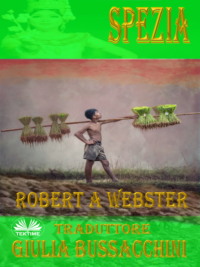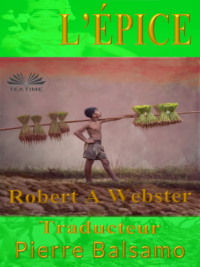
Полная версия
Blue Flame
“Yes, Füehrer,” said Kurt, looking confused as he reached into his case and took out a small journal.
“Everything on my research is in this book. However, the BUCH MOSE file, also had the details,” said Gutzieg.
“Anything else?” Hitler asked, glaring at the professor.
“No Füehrer,” announced Gutzieg, furrowing his brow and looking nervous.
Hitler held out his hand, and the professor handed him his journal, assuming he wanted to study it. Instead, Hitler went over to the fireplace, tossed the professor’s journal into the flames, and then re-joined the group. Noticing the shocked disbelief on Professor Gutzieg’s face, he said, “If this fell into the wrong hands, they would realise we have done something using this technique and investigate, and we can’t allow that, can we Kurt?”
Gutzieg watched his work burn. He sighed, shook his head, and replied, “No, my Füehrer.”
Hitler flicked through the rest of the folder and asked Mengele, “Are you familiar with the professor’s technique, Josef?”
Mengele had known Hitler for some time, so became suspicious of his question and said. “No Füehrer, the Professor never involved me in his research.”
Kurt Gutzieg looked shocked by Mengele’s reply, because he had spent a great deal of time assisting him and knew his techniques, so why lie? A horrifying thought entered his mind. He felt nauseous and afraid as Mengele, changing the subject, said, “All mothers and children are in excellent health and ecstatic with their miracle babies. They are all in different hospitals, so they will never meet or know the truth. The medical staff wouldn’t suspect anything because we used the miracle babies as a sign that things would improve for Germany with these omens.”
“Are you certain nobody had any idea what happened?” Hitler asked, with menace in his voice.
Mengele nodded, “Positive Füehrer; they all think they were amongst the hundreds that we sterilized. They don’t realise the process was different for them, so when they became pregnant they assumed it was either the failure of the sterilization or a miracle,” Mengele assured him.
“Kurt, you performed all these embryo techniques?” Hitler asked.
Still numb with shock, Gutzieg replied, “Yes Füehrer.” He glared at Mengele and told Hitler, “I performed yours and Eva’s egg fertilization and the implantation into our subjects,” although he felt unsure why he should protect Mengele, but thought history would now remember him alone, with his ego bigger than his life.
Hitler took all the folders from the table and went over to the BUCH MOSE strongbox. He removed a key chain from around his neck and put it into the lock. Lights flashed from the keyhole, scanning the key. The lock’s mechanism clattered and went silent as the lid popped open slightly. He lifted the lid and shouted over at the two men, “You’ve destroyed any samples.”
“Yes, Füehrer. We disposed of everything as per your orders,” confirmed Mengele.
Hitler put the files into the box, closed the lid, and removed the key. Tumblers fell into position, locking the chest. Hitler re-joined the sitting group. Eva was still smiling, unaware of the fate of one of the two men who sat beside her and who had provided Hitler and herself with heirs.
“Thank you gentlemen; that will be all… Josef, don’t forget my 5th photo and information,” said Hitler and summoned the guards.
“I will take care of that personally Füehrer,” said Mengele as two guards came over and Hitler spoke to one, who then glared at Kurt Gutzieg.
Gutzieg and Mengele stood. Gutzieg trembled and Mengele smirked, as Hitler ordered, “Take the doctor and professor topside and make sure they are well taken care of.”
The soldiers snapped to attention and escorted the two out of the room. Gutzieg dawdled, terrified of his impending doom. He was a proud man and even though knowing he would never see his family again, he accepted his fate with dignity. Glancing back at Hitler with his back turned speaking to Eva, he looked at the embers of his life’s work, smouldering within the flames.
“Herr Professor, please come this way,” said the guard as he lagged behind Mengele and his escort.
5
The man who has no sense of history, is like a man who has no ears or eyes
Granny Pearl explained to Church over his first few days at the cottage what their edict entailed and how they provided a link between the mortal world and the celestial plane.
She explained, “When someone died unexpectedly, some of them they left something unresolved in the mortal world, so and are unwilling to go into the light of the afterlife. These are lost souls, and your task, Church, was to resolve these spirits issues in the mortal world to let them find peace so they will pass over to the afterlife. These cases usually involved finding something of value hidden by the deceased which they want given to their relatives.”
Church realised this could be a difficult task. He had to be a researcher, private detective, and a grievance counsellor, having to deal with whatever challenges he came across.
Granny Pearl explained how, and over time told him the rules he must follow.
Church spent many hours in the portal room with Granny Pearl and Grandpa Jack’s spirits tutoring him. This education felt comfortable and normal, giving him a sense of belonging, away from the outside world that ridiculed him.
Church studied the Potts journal. His mother and father gave him some money after cashing in their inheritance and Church had a phone installed. He knew he had to learn how to run the family business to make his reclusive lifestyle possible and be independent.
Every Keeper of a portal kept a journal. Robert and Elizabeth Potts started the Potts journal in the 16th century, with updates recorded by Keepers throughout the ages when changes occurred in either world.
He learned:
Portals: These celestial gateways connected the spirit world to the mortal world. In the mortal world, permanent portals were on consecrated ground throughout the world and guarded by mortal Keepers and Guides and at fixed locations. There were also temporary portals. These opened briefly and could appear anywhere. Portals appear as a large vivid blue flickering flame and, depending upon the spirit inside, their coloured aura appeared in the centre, with portals only visible to Chosen ones.
Granny Pearl told Church that their portal, although over 400 years old, was relatively new, and known as: ‘The Potts Portal,’ which Church thought sounded cool, but she also gave him a stark warning about portals.
“Mortal Keepers and Guides must never enter a portal.”
Auras: Every human being has an aura surrounding them and only seen by individuals possessing the gift. In life, these auras appear in various colours surrounding the body. Apart from gifted ones’, everybody’s aura is white. Individuals with the gift auras are different colours. Guides have a crimson aura, and Keepers of Portals such as Church and Granny Pearl, have multi-coloured spectral auras, like shimmering rainbows. These auras are mortals’ souls and in death, become orbs of energy with memories to exist in the spirit world and the afterlife. There had been black auras encountered throughout the ages but these were extremely rare occurrences.
The Gift is a psychic power bestowed upon selected individuals when soul and body combined at birth. It is an undetectable gene, known as the spirit gene. This ability allows people with the gift to contact the spirit world, along with processing certain powers.
Chosen-ones: People possessing the gift passed down through bloodlines. These are the guardians of portals, known as Keepers and Guides. These people possess certain extra powers and have clearer insight and knowledge of the spirit world. Chosen ones were partnered at birth, and once they meet in later life when the time was right for their joining, they stay together for eternity.
Keepers: Spirit and Mortal, are guardians and custodians of permanent portals. They are the connection between the mortal and spirit world, to help lost souls find peace and closure. At the Potts’s Portal, Granny Pearl is the Spirit Keeper and Church is the mortal Keeper. Jack is Pearl’s Spirit Guide, and thus far, the jury is still out on Church’s mortal Guide. A mortal Keeper’s gift comes with powers to assist them, such as the ability to see portals and spirits. They can sense emotions in spirits and gifted individuals, along with other abilities needed to communicate with spirits and mortals.
The one Church found useful was his ability to understand every human language, written and spoken, in both modern-day and ancient texts. Church often wondered how many lifetimes it would take an intellectual to achieve this. Church decided to have some fun, so telephoned his old school. He wanted to speak with Mr Grimley, a teacher whom Church had always disliked, as he called him Pin-Brain Potts. Grimley, the French and German tutor, was fond of spouting off in either language to show off. He always reminded Church of a certain Nazi dictator and he chuckled as he dialled the number.
“Hello, Richard Grimley speaking,” answered the teacher.
Church didn’t announce himself, he just said, “You are a twat,” in German, French, Spanish, Swahili and any other language that popped into his head. He continued until an angry Grimley hung up the phone.
Guides: Spirit and Mortal. Spirit Guides take lost souls to a permanent portal to contact the Spirit Keeper. Mortal Guides assist Keepers with their quest to resolving problems and only Chosen-ones Guides can see portals and spirits.
Individuals who have the gift but not Chosen-ones are also known as Guides. These people in life are mediums, clairvoyants, spiritualists, etc. When they die and become Spirit Guides and stay at the first level to help lost souls. These Spirit Guides are many and take lost souls to the right portals Spirit Guide or Keeper. They also use temporary portals to contact mortal Guides, although this contact is brief and instigated by the living Guide, via séances or other means to contact the spiritual realm. These Spirit Guides have restrictions and the mortal Guides cannot see spirits or portals, although they can see mortal’s auras, hear spirits, and smell their odours. Their gift was not passed down the bloodline and they have no joining, so whom they married was their choice.
All Spirit Keepers and Guides give off a familiar smell associated with them in their lifetime that only people with the gift could smell. The Keeper’s odours are stronger. Granny Pearl’s odour was of Brussels sprouts, while Jack’s odour smelled of Brylcreem, which made Church worried about using Brut body splash.
Church was nineteen when Granny Pearl introduced him to his first assignment and as Church fixed a leaking tap in the toilet, he smelled Brussels sprouts.
‘Granny Pearl’s early.’ he thought as he made his way to the portal room.
Granny Pearl was in the Portal along with a white spirit. She introduced Church to Albert Wright, a recently deceased 79-year-old man who was now a lost soul with a problem. Church felt sadness coming from Albert’s soul as he related his story, while Church wrote the details on a large notepad, which he referred to as ‘Spirit notes.’
PATH GTR 001: Fishermans Friend
Albert’s tale began 30 years ago, during the late 1950s. Albert was the skipper of the trawler ‘Ross Rodney’ sailing from the port of Grimsby.
With calms seas, they fished for cod on the Anthony Bank fishing grounds in the North Sea. Coming to the end of a trip and with the fish hold almost full, dawn broke as they hauled in the last catch of the season. The bulging net covered the deck and the crew removed the cod-end spilling fish wriggling onto the slippery deck. The five-man deck crew went to work, sorting the catch. The crew saw several large boxes amongst the writhing fish and removed eight boxes from the nets. They carried them below deck until they had finished sorting, gutting, and icing their catch. While steaming home, the crew gathered in the galley to investigate their find. They gasped in amazement when they opened the first wooden box and found it contained gold bars and the seven other boxes contained the same, with a small-engraved brass plaque fixed onto each box.
SS BATAVIER V
Dutch/Batavier line. Amsterdam:
Built: Gourley Brothers & Co.
Commissioned: 1903.
Delighted, but shocked by this treasure, Albert and his crew knew they must keep their discovery quiet, realising that the English government would take the gold off them as the country still suffered from post-war expenses, so they buried the loot in Albert’s garden amongst his vegetable patch.
Several days into their next trip, on a bitterly cold January morning, they set the trawl nets into a calm sea. Albert started the slow trawl and then he and the crew felt a thud on the port side. The Bosun went across the slippery deck to investigate as an explosion ripped through the side of the vessel, violently rocking the boat, and throwing the Bosun into the icy cold ocean. They had struck an unexploded mine, one of the many from World War 2, still floating around the North Sea. The small trawler listed and started sinking, with the crew tossed into the bitter, cold, merciless North Sea. Immersed in the frigid water, Albert panicked and splashed around, his drenched woollen deck clothes now became like a lead suit dragging him under to a watery grave. Accepting his fate, he stopped splashing and prayed as he sank beneath the waves. His hand then touched something and he grabbed onto a piece of fishing net attached to the Rodney and hauled himself back to the surface. The little trawler turned turtle, leaving the keel exposed above the waterline. Albert pulled himself onto the icy cold metal of the keel. With the last of his strength, he entwined himself in the netting. He resembled Captain Ahab snared to Moby Dick.
Luck or fate was on Albert’s side, as a trawler fishing nearby saw the Rodney’s plight and steamed towards the stricken vessel. The trawler, aptly named the Samaritan, pulled alongside the upturned hull, the crew saw Albert lying exhausted, and as hypothermia took hold, he felt at peace. He closed his eyes and said a prayer before he heard someone yelling and the engines of another trawler.
“Grab the float,” yelled a crewman as Albert heard the dull thud of a cork float hit the overturned hull. He glanced over and saw the rope of the rings of cork slipping off. He grabbed the rope and, untangling himself from the Rodney’s net, clung on as the Samaritans crew hauled him through the frigid water and onto their deck.
The Samaritan’s fearless crew, after pulling Albert from the clutches of an icy, watery grave, searched the surrounding area but unable to find the rest of Rodney’s crew.
Mariners are superstitious and Albert, now fearing the Bataviers treasure cursed, never touched the gold for decades.
Albert lived in his home in Grimsby throughout his life. He and his wife had a son, Keith, who had a son, named John.
Losing the Rodney and its crew devastated Albert, although he continued to skipper trawlers until he hung up his oilskins and retired from fishing at 65 years old. He’d seen the decline of the industry he loved over the next ten years and with his wife dying a few years earlier, he knew his end drew near. He wanted to leave his family something of value. One night, he was watching a T.V. program on the BBC about a treasure unearthed in England. The program mentioned that the finders kept all the proceeds. Albert knew then what he must do. Even though he feared the gold cursed, he felt that maybe the curse would lift if he passed it on to help others. At least proceeds from the sale would come in handy for his grandson John and his family, with him being out of work and a new baby on the way.
Albert wrote to the admiralty and various government departments. The government responded by writing him a letter, informing him about the vessel: Steam Ship SS.Batavia V, which sank in May 1916, along with its cargo of gold, rice, etc. The letter explained about the vessel and its contents insured by a Swiss company, so with no one salvaging the wreck or its contents, the gold legally belonged to him.
On receiving the letter, Albert dug the boxes the following day. Unfortunately, the fickle finger of fate stepped in, and Albert suffered a fatal heart attack. He died before his planned excavation.
“I would like you to help my grandson John find the gold,” said Albert and gave Church instructions and relevant information he thought useful.
“Good luck Church,” said Granny Pearl, as her and Albert’s spirits faded, and the portal closed. Church read his notes and called his parents.
The following day, Church borrowed his mother’s battered, second-hand Ford Escort car and drove the four hours to the northeast coast. He arrived at Albert’s old house in Grimsby late afternoon.
John, a fisherman like his father and grandfather but with the fishing industry in severe decline, with most of the trawler fleet decommissioned, John was unemployed. Albert had bequeathed his house, including the contents to John, and he and his pregnant wife had moved in several days ago.
Church sat outside in the car, trying to figure out his best approach. Albert had told Church that as a child, John would often visit, but he had seen little of him over the past few years. Using this information, Church figured out a plan. John and his wife Sandra were in the kitchen unpacking boxes when Church knocked on the door. John answered.
“Hello John. My name is Church and I was a friend of your Grandad’s,” Church smiled and extended his hand.
John frowned and looked bewildered. “He never mentioned you,” he said and shook Church’s hand.
“Probably not,” said Church. “The last time I spoke to Albert he told me that you rarely visited, but he often spoke about you.”
John sighed, as it had been well over a year since he had last seen his Grandad.
“Well, it’s nice to meet you Church. What can I do for you?” asked John.
“I wanted to offer my condolences and tell you that your Grandad mentioned something that concerned him the last time we spoke,”
“Who’s at the door?” shouted Sandra from the kitchen.
“A friend of Grandads,” John shouted.
“Invite them in, but tell them we are in the middle of unpacking, so excuse the mess.”
“Yes dear,” said John smiling and said, “Come inside Church, we can chat over a cuppa.”
Sandra joined them in the living room bringing in two mugs of tea and the three sat on a couch. Church told the couple how he was a neighbour until his family recently moved. “I often came to see Albert and listen to his stories. One of the neighbours called my dad and told him that Albert passed away. I came to see you and keep a promise that I made to Albert. He wanted to make sure you found the gold,” said Church.
John chuckled and said “Not you too. Grandad used to rave on when I was a child about this cursed treasure buried in the garden. I never believed him. It was only a fairy-tale,” he laughed and said, “Don’t tell me that you believed him.”
Church smiled and said, “Well, he had me fooled, especially after showing me the letter.”
John frowned and asked, “What letter?”
“The one from the government,” said Church. “Didn’t you read it?”
John and Sandra looked at each other.
John shrugged and said, “No, we have seen no letter.”
“Oh, that’s strange,” said Church. “Perhaps it’s still here somewhere. It was very important, so I doubt if Albert threw it away.”
John thought for a moment and went to find the box of papers that he was about to put in the rubbish. He brought in the cardboard box containing letters, papers, and various photos.
John placed the box on the table, and they rifled through it.
“Is this it?” Sandra asked, holding up a government-franked envelope.
“Yep, that’s it,” said Church, hoping it was.
John read out the letter from the admiralty. When he’d finished, he looked shocked and said,
“It says we own the gold, great!” he and Sandra smiled at each other and then John’s expression change as he screwed up his face and said, “Hang on a minute; what gold? Not Grandad’s fairy-story gold.” He then smiled and said, “Grandad was a great one for stories and exaggerating.”
“Maybe so,” Church said, “But Albert told me where it’s buried.”
“Why didn’t he dig it up before then?” John asked, sounding suspicious.
“Albert told me it was cursed for anyone, except you, John,” said Church.
John smirked and said, “And you believed him?”
“Albert was a mariner and superstitious, so yes, I believed him,” said Church, knowing that John also being a fisherman would understand about fate.
“What do you want?” Sandra asked sounding abrupt.
“Nothing,” said Church.
“We’ve only known you for a few minutes, and you want us to dig up our lawn because you made friends with a crazy old man,” said Sandra glaring at him.
“I know it sounds bizarre, but what do you have to lose? I know where to dig, so if I am wrong, you can laugh me out of your home… But what if I’m right?” Church asked and gazed at the couple.
Church and John took turns digging at the spot where Albert had instructed. They had only excavated down a short way when John’s shovel struck something solid. They removed the boxes and, joined by Sandra, opened the first box of gold ingots. John and Sandra’s eyes widened and they gasped.
“He wasn’t such a crazy old man after all, was he?” said Church grinning.
John fumbled for words while examining one of the gold bars. “There must be a bloody fortune here!”
“And it’s all yours,” said Church.
They spent the rest of that day and the following morning at banks and gold traders around Lincolnshire with the Admiralty letter in hand. They sold some of the gold bars and the rest John put in a bank’s safety box. Church spent the night in a spare room at John and Sandra’s.
The following day, Church said he had to leave.
“You are a godsend, Churchill Potts,” said Sandra, hugging Church.
“Yeah, you’ve changed our lives for sure,” said John, with tears welling up as he rubbed his pregnant wife’s stomach, and added, “At least he will have a good start in life.”
“Or she,” interrupted Sandra,
“Thanks to Albert” Church reminded them.
John faced the heavens and said aloud, “Cheers, Grandad.”
He then handed Church an envelope and one gold bar. “Here Church, take this as a token of our gratitude.”
Church opened the envelope and pulled out a bundle of crisp banknotes.
“It’s the least we can do,” insisted John. “Now, put it to good use and make sure you keep in touch.”
Granny Pearl had told Church that he could not charge a payment for his help. However, John insisted on him taking the gift, as did many others who Church helped.
Church thanked the couple. He put the money and gold bar into his pocket and said his goodbyes.
Church drove home thinking about how to spend his fortune. ‘Five hundred pounds and a chunk of gold for a few days’ work, that’s fantastic.’ he thought, never having seen that much money before, although he knew it was not always going to be that simple or lucrative.
Church arrived back at the cottage early in the evening. From the familiar smell that greeted him, he knew Granny Pearl was waiting in the portal room. Feeling excited, he went to tell Pearl about his success, and he felt an overwhelming feeling of happiness. He smiled and stood in front of the portal, facing Granny Pearl and Albert.
“You’ve done well Church,” said granny Pearl, adding, “Albert is ready to pass over, but wants to thank you.”






